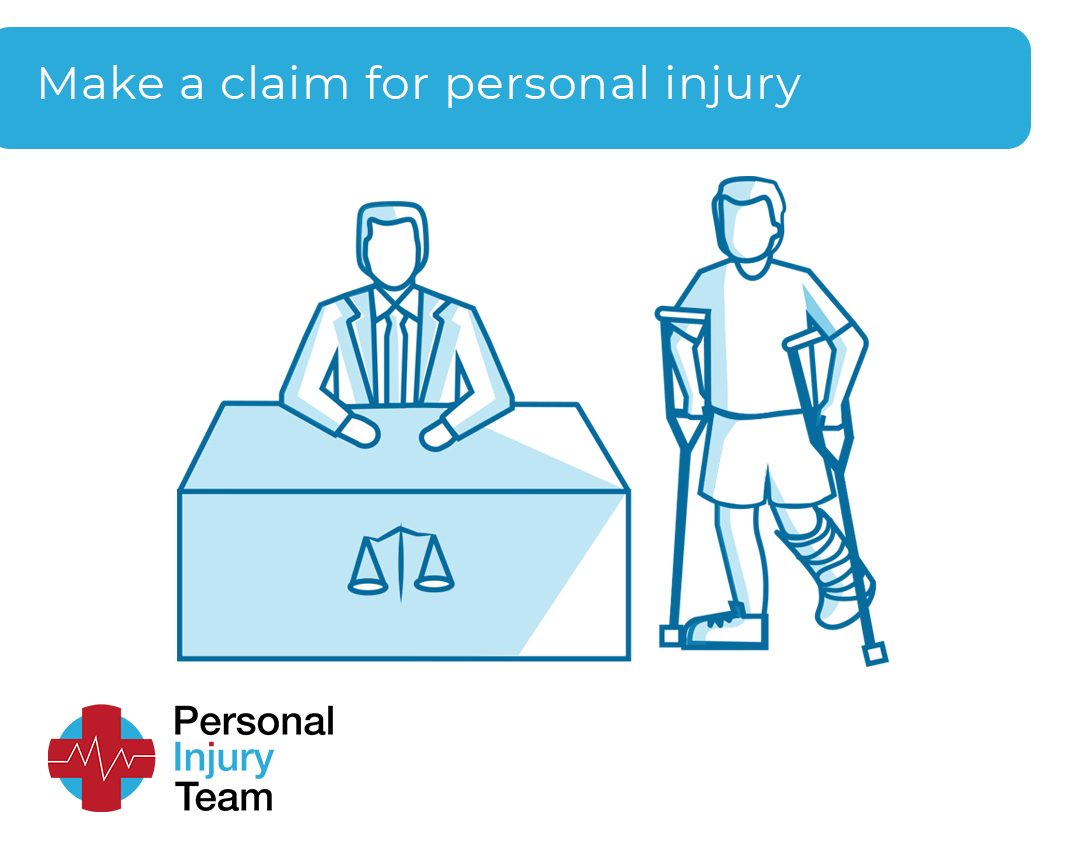An orthopaedic injury compensation claim seeks damages when you suffer a personal injury in an accident that was not wholly your fault. You are the one who suffered when your left leg was broken in an accident at work or that torn ligament in the wrist was misdiagnosed as a sprain.
The personal injury of an orthopaedic injury caused by the negligence of others may cost you in terms of time off work and lost income. You may have to make adjustments to your car and your home, and you could have difficulties getting to work and enjoying a social life.
You may be able to claim compensation for the effects of the personal injury today and in the future. If your orthopaedic injury was caused by a lack of duty of care by another person or in an accident that was not wholly your fault, you may have an orthopaedic injury compensation claim.
A No Win No Fee personal injury claim can seek compensation when you suffer an orthopaedic injury in an accident that was not wholly your fault.
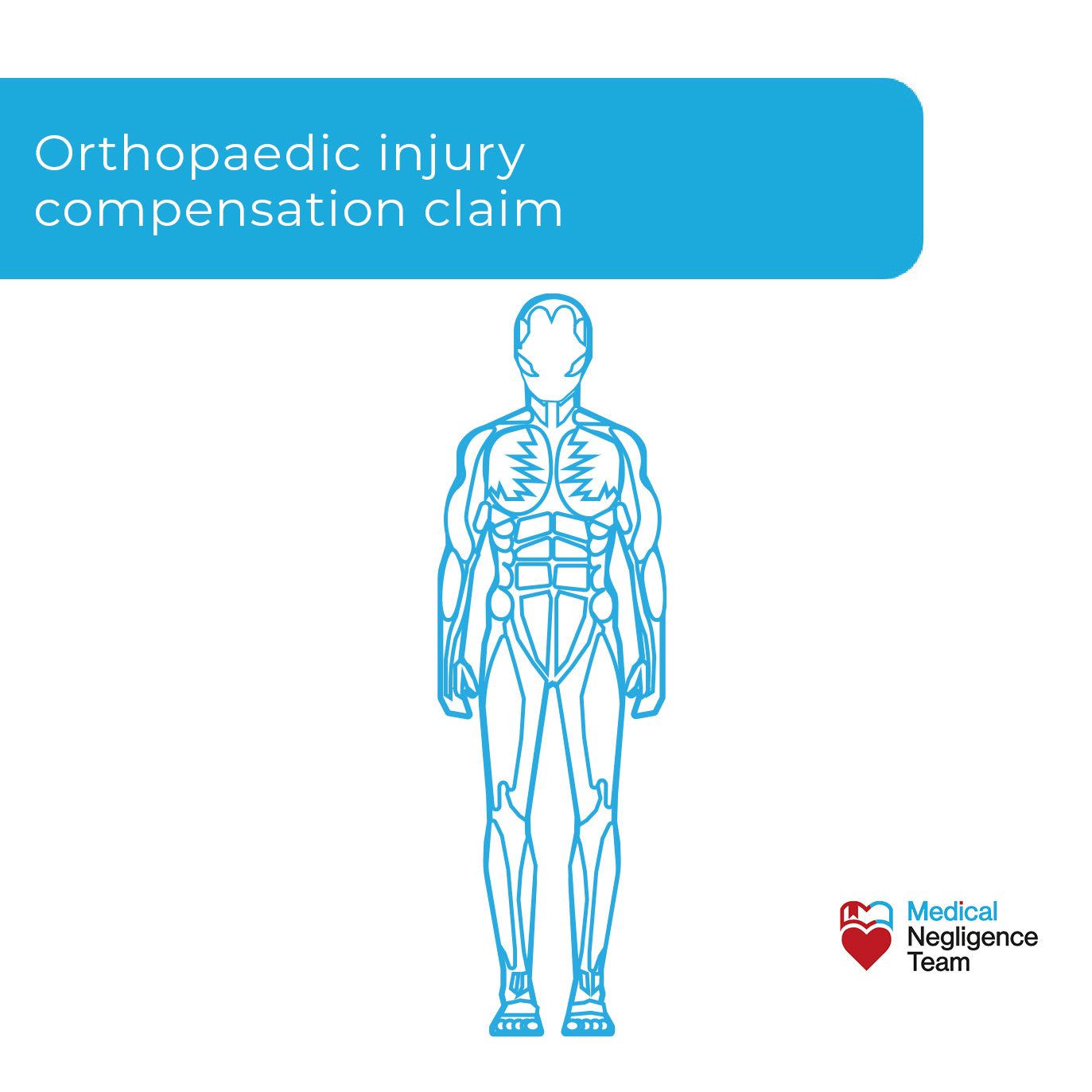
Table of Content
What is an Orthopaedic injury?
An orthopaedic injury is an injury to the musculoskeletal system of the body. You could suffer pain and long-term disability and need expensive therapy for months and years if you suffer an orthopaedic injury.
You could suffer an orthopaedic injury in the:
The orthopaedic injury may be obvious when you fall and break your leg in the shopping centre, but in some cases, the injury does not become obvious until later when you are in a lot of pain and discomfort.
An orthopaedic injury can happen when you are in the workplace and fall down slippery stairs or at the local supermarket when the floor is wet on a rainy day. There are many types of orthopaedic injuries, and they can happen anywhere.
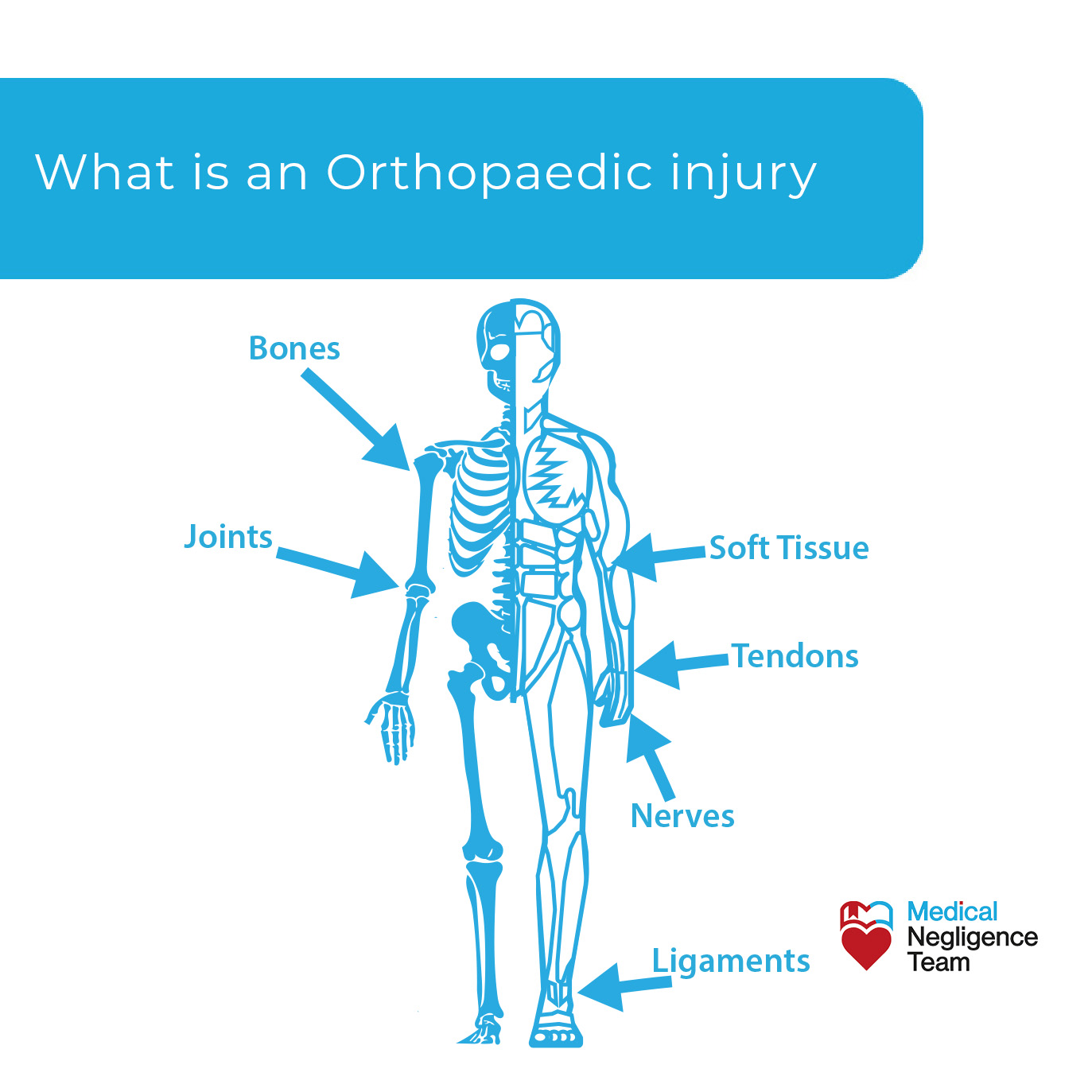
Orthopaedic negligence claims can happen from when you are:
An orthopaedic injury can cause severe pain and could affect your life in many ways for a long time. You may be unable to drive or could be forced to give up work due to an orthopaedic injury.
A No Win No Fee personal solicitor can look at your orthopaedic injury case and see if you have a valid compensation claim.
Common orthopaedic injury claims
Common orthopaedic injury claims range from the broken arm in a workplace accident to a back injury in a road traffic accident and the missed ankle break on an X-ray by a hospital doctor.
You can make an orthopaedic claim for compensation when you suffer an injury in an accident that was not your fault or not wholly your fault. You seek compensation for the effects of the injury today and in the future.
Common orthopaedic injury claims:
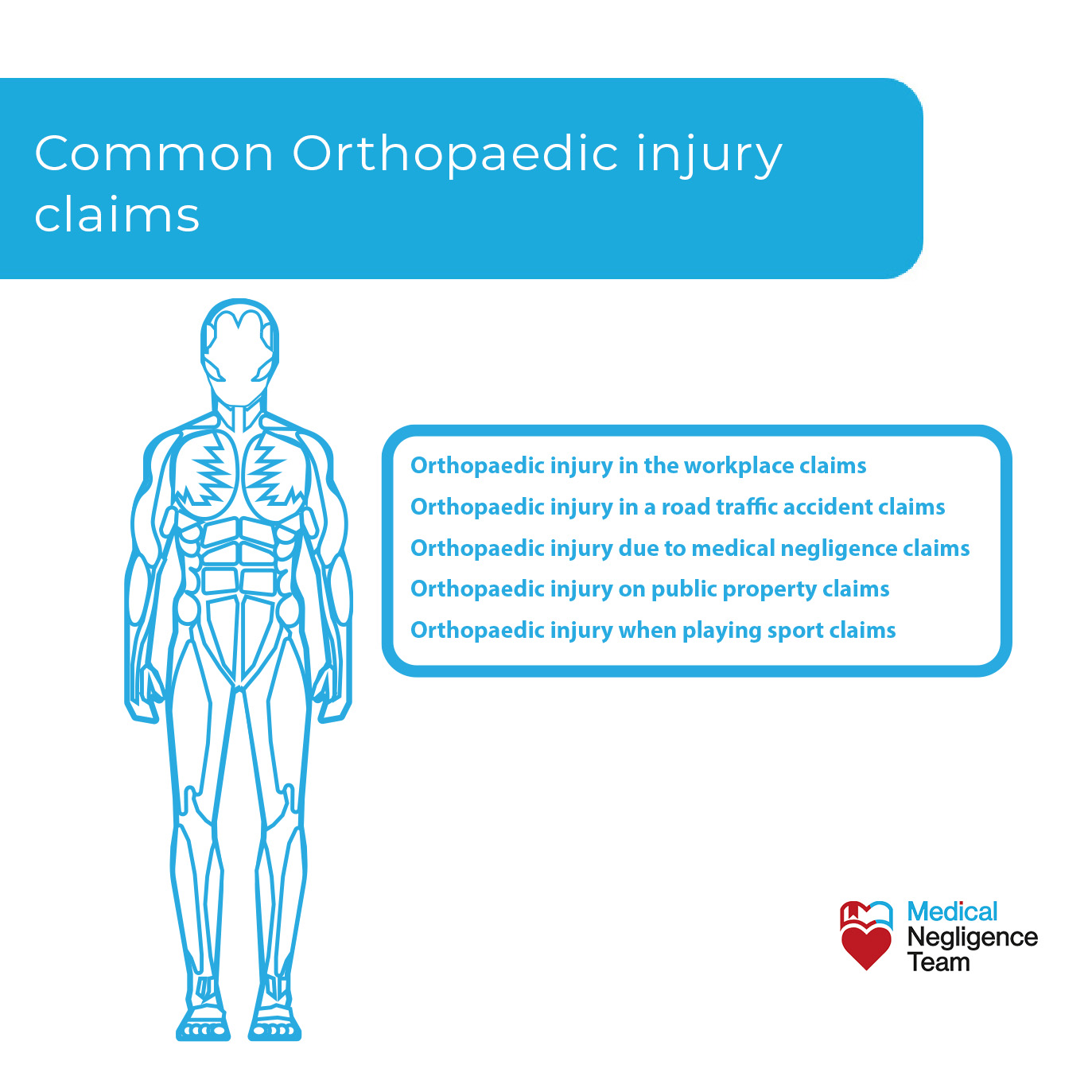
Orthopaedic injuries can restrict your life, affect your ability to earn and cause problems for you and your family.
You may have a personal injury claim for the effects of the orthopaedic injury, and you could claim compensation against those responsible for the negligence that caused the accident.
Our Process
We make the claim process as simple and streamlined as possible, and that’s one of the reasons we’re maintain a 4.9 / 5 ★ rating from our customers!
Enquiry
The first step is to get in touch and tell us what went wrong. It’s free and easy. Call our 24-hour helpline: 0800 027 0370 or request a callback here.
Claim Evaluation
Once you have spoken with our team we’ll let you know how we can help. This will involve a thorough case review and understanding of the incident, financial damages and physical injuries.
Legal Letter
Once we are satisfied we have all the information we require and have a full understanding of your circumstances. We send a letter of claim to the negligent party outlining your claim and compensation requirements.
Compensation for Orthopaedic Injury Claims
You can seek more than £10,000 in compensation in an orthopaedic injury claim. Some orthopaedic claims see compensation in the £100,000s with amounts in excess of £10 million in some cases.
An orthopaedic injury claim may be for the workplace injury of a broken leg in a fall down the office steps or the pain and suffering of a wrist sprain following the slip on the warehouse floor. You can claim for an orthopaedic injury of a broken arm in a public place accident or the broken hip from a sports injury.
The torn ligaments, cracked ribs, and broken bones could affect your ability to work or find similar work in the future, and you may need time off work to recover fully from any orthopaedic surgery following the injury.
You can claim compensation for the effects of the orthopaedic injury today and in the future. The amount awarded depends on the severity of your orthopaedic injury and the impact it has on your life.
Amounts of compensation in an orthopaedic injury claim are:
(The figures given here are for General Damages amounts only. You will also receive compensation for any financial losses you suffer due to the personal injury. Figures are taken from Judicial College Guidelines 16th Edition and are accurate as of April 2023.)
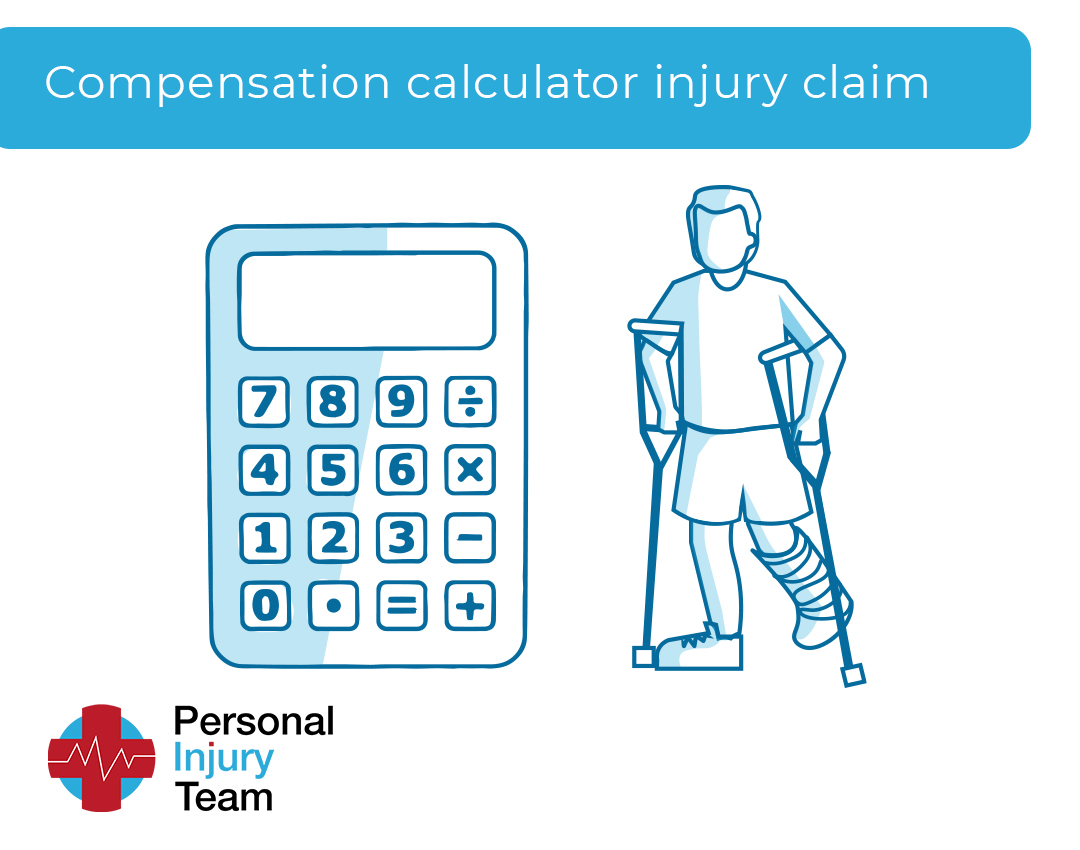
There is not one fixed amount for an orthopaedic injury claim, and how much compensation is awarded for the broken bones, torn ligaments and nerve damage will be tailored to the circumstances of your claim.
A No Win No Fee personal injury solicitor can tell you what to expect from their experience in the orthopaedic claims process.
What are you being compensated for in an orthopaedic injury claim?
In an orthopaedic injury claim, just like any personal injury claim, you are being compensated for two types of damages:
The amount of compensation awarded for your orthopaedic injury claim is the total of these two types of damages.
Who is eligible to claim for an orthopaedic injury?
You may be eligible to claim for an orthopaedic injury if it happens in an accident that was not your fault or wholly your fault while at work, in a road traffic accident, while exercising or due to a misdiagnosis.
An employee may be able to claim for a workplace orthopaedic injury, such as a broken leg in a construction site accident or a fall in the office.
Anyone who suffers an orthopaedic injury, such as a snapped wrist in a road traffic accident or torn ligaments in a fall on a poorly maintained path, could be eligible to claim compensation.
Dependents may be able to claim compensation if a loved one cannot represent themselves after an accident that was not their fault or only partially their fault.
A dependent is defined as:
You may be able to claim compensation if you depend on someone who cannot represent themselves after an orthopaedic injury or who may have passed away due to the effects of the accident.
Your No Win No Fee personal injury solicitor can help with your compensation claim.
How to make a claim for an orthopaedic injury
To make a claim for orthopaedic injury compensation, there are usually a few standard steps to follow. We will guide you through the entire process from first contact through to the conclusion of your claim.
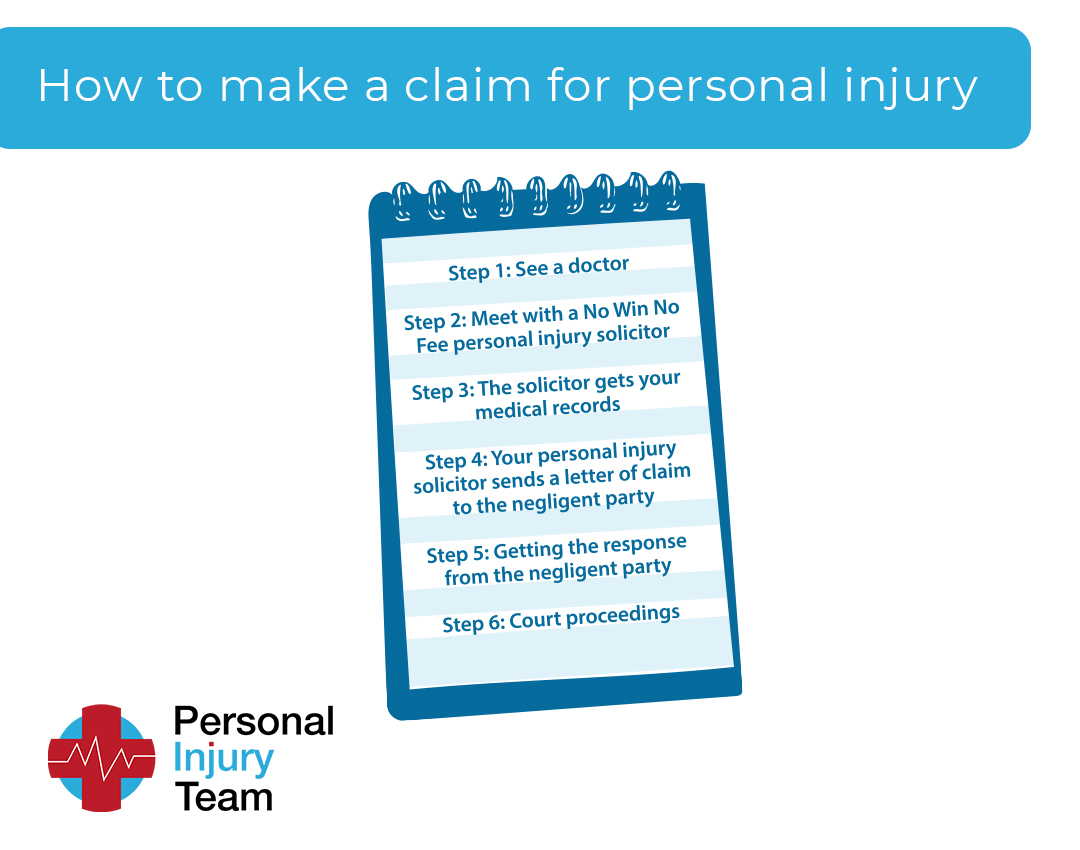
Find out how much you can claim today for an orthopaedic injury
Use our online assessment tool today to determine how much you can claim for your orthopaedic injury. The damage from a broken shoulder, or a broken ankle may be with you for life, and you may be able to claim compensation for the damages involved.
The Personal Injury Team FREE online assessment tool will put you in direct touch with one of our team, who will give you a full rundown of what can happen with your orthopaedic injury claim.
Compensation amounts for an orthopaedic claim vary, and expert advice from one of our team members can help you with an idea of compensation for the broken wrist after a slip at the supermarket or cracked ribs in a road traffic accident.
Only by contacting one of our team will you get an orthopaedic injury claim up and running today. Our specialist medical negligence team can help with medical negligence cases.
Contact your Personal Injury Team today for immediate and expert orthopaedic injury advice tailored to you.
